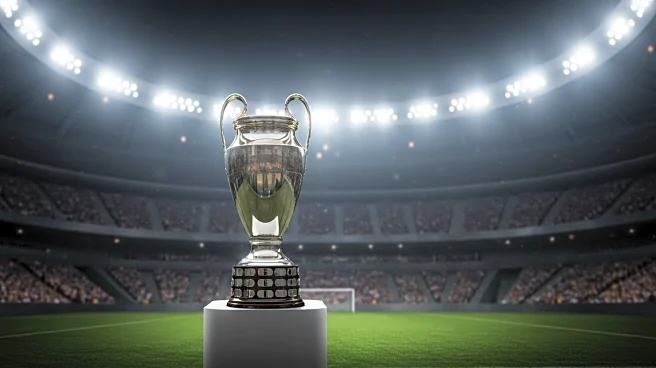What's Happening?
The University of Michigan has been fined significantly by the NCAA Division I Committee on Infractions due to a sign-stealing scandal. The fines could exceed $30 million, but the university avoided penalties such as a postseason ban or vacating victories from the 2023 national championship season. Coach Sherrone Moore received an additional game suspension for the 2026 season opener and a two-year show-cause penalty. Former staffer Connor Stalions and former coach Jim Harbaugh, now with the Los Angeles Chargers, received eight-year and ten-year show-cause penalties, respectively. Michigan plans to appeal the NCAA's decision, citing errors in interpreting bylaws and conclusions contrary to evidence.
Why It's Important?
This ruling has significant implications for Michigan's football program and the NCAA's enforcement approach. The substantial fines reflect a shift away from postseason bans, aiming not to penalize current athletes for past actions by former staff. The penalties could impact Michigan's financial resources and recruiting capabilities. The show-cause penalties for Harbaugh and Stalions act as barriers to future employment in college football, highlighting the NCAA's stance on serious infractions. The case underscores the NCAA's evolving enforcement strategies amid changes in college sports governance.
What's Next?
Michigan will appeal the NCAA's ruling, seeking a fair outcome. The appeal process may lead to adjustments in penalties or further scrutiny of the NCAA's infractions process. The university will need to navigate the financial impact of the fines and recruiting restrictions while maintaining compliance with NCAA rules. The suspension of Coach Moore will affect Michigan's preparation for the 2025 season, requiring adjustments in coaching strategies. The broader implications for NCAA enforcement and college sports governance will continue to unfold as the appeal progresses.
Beyond the Headlines
The case highlights ethical concerns in college sports, particularly regarding competitive advantages gained through illicit means. The NCAA's decision to impose financial penalties rather than postseason bans reflects a shift in prioritizing athlete welfare over institutional punishment. The scandal has affected Michigan's reputation and raised questions about the integrity of its championship run. The involvement of former staff in the sign-stealing operation points to deeper issues within the program's culture and oversight.









